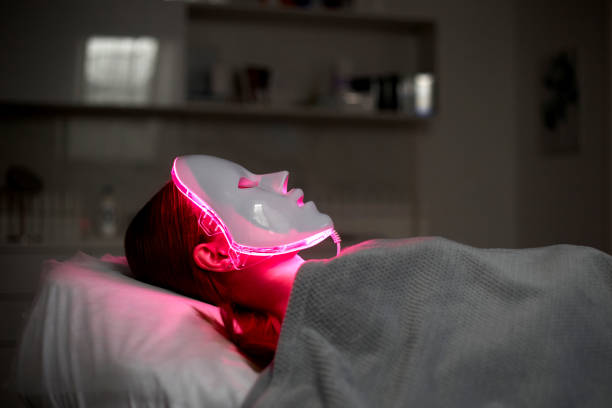Acne treatment has come a long way with advancements in technology offering innovative solutions for clearer, healthier skin. Whether you struggle with persistent acne or scarring, these cutting-edge treatments provide exciting new possibilities. Let’s delve into the top emerging technologies making waves in the skincare world.
1. Light & Laser Therapy
Light and laser therapies have revolutionized acne treatment by targeting both active acne and scarring. These therapies are particularly useful for individuals whose acne persists despite medical treatments, or for those who experience side effects from medications. By using specific wavelengths of light, these treatments reduce inflammation, kill acne-causing bacteria, and promote skin regeneration. With minimal downtime and noticeable results, they offer a compelling alternative for many patients.
2. AI-Powered Skincare
Artificial intelligence is transforming the way we approach skincare. AI-powered tools analyze an individual’s skin type, concerns, and environmental factors to recommend personalized skincare products and routines. This technology ensures a more targeted approach, helping users achieve optimal results. By taking the guesswork out of choosing skincare products, AI empowers individuals to address their unique skin challenges effectively.
3. RF Microneedling
Microneedling with radiofrequency (RF) has emerged as a safe and effective treatment for active acne and scarring. This method combines tiny needles with RF energy to penetrate the skin, promoting collagen production and healing. RF microneedling not only treats acne but also reduces scarring and the risk of recurrence. Its quick response time and minimal side effects make it a popular choice among dermatologists and patients alike.
4. Genetic Testing and Personalized Treatment
Genetic testing is bringing a new level of precision to acne treatment. By analyzing genetic variations associated with acne predisposition and response to treatments, healthcare professionals can create tailored regimens. These tests provide insights into factors like skin condition, inflammation, hormonal influences, and nutritional needs. The personalized approach ensures that treatments are both effective and aligned with an individual’s unique biology.
5. Virtual Reality (VR) for Stress Management
Stress is a well-known trigger for acne, and virtual reality is offering a novel way to address this issue. VR immerses users in calming, therapeutic environments that promote relaxation and mindfulness. Research is increasingly showing its potential for reducing stress, making it an indirect yet impactful tool in acne management. By lowering stress levels, VR helps minimize flare-ups and supports overall skin health.
Conclusion
The future of acne treatment is brighter than ever, thanks to these emerging technologies. From light therapies to AI-driven solutions, these innovations provide new hope for those seeking effective ways to manage acne and improve their skin. However, it’s essential to consult a dermatologist to determine the best treatment plan for your unique needs.
For more tips:
Subscribe on YouTube: Diana Lily Acne Free Club
Follow on Facebook: Acne Free Club
Follow on Instagram: @dianalily_acnefreeclub
Your acne-free skin journey starts now! 🌟

